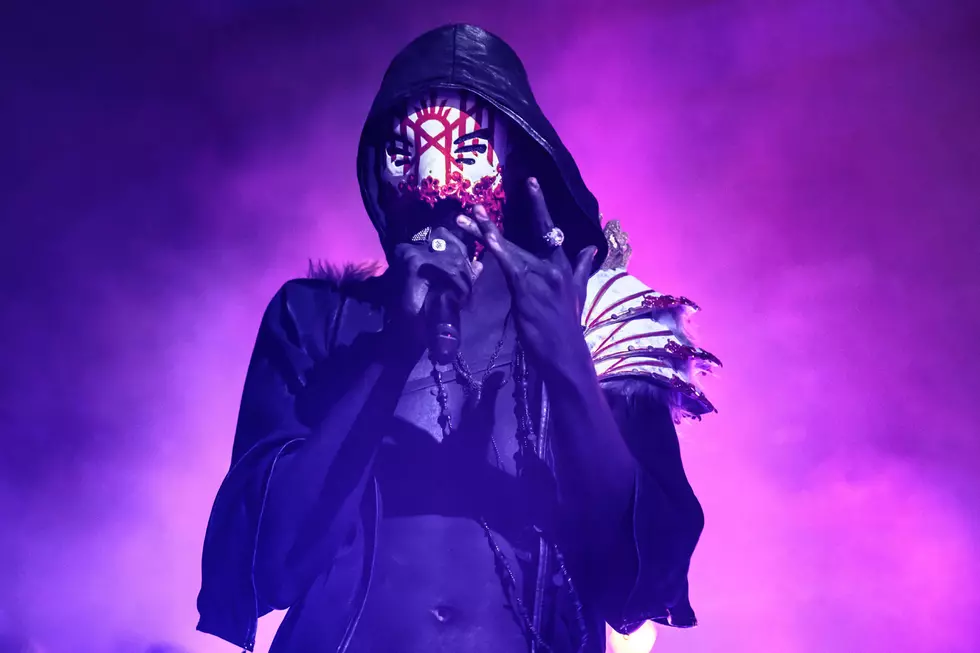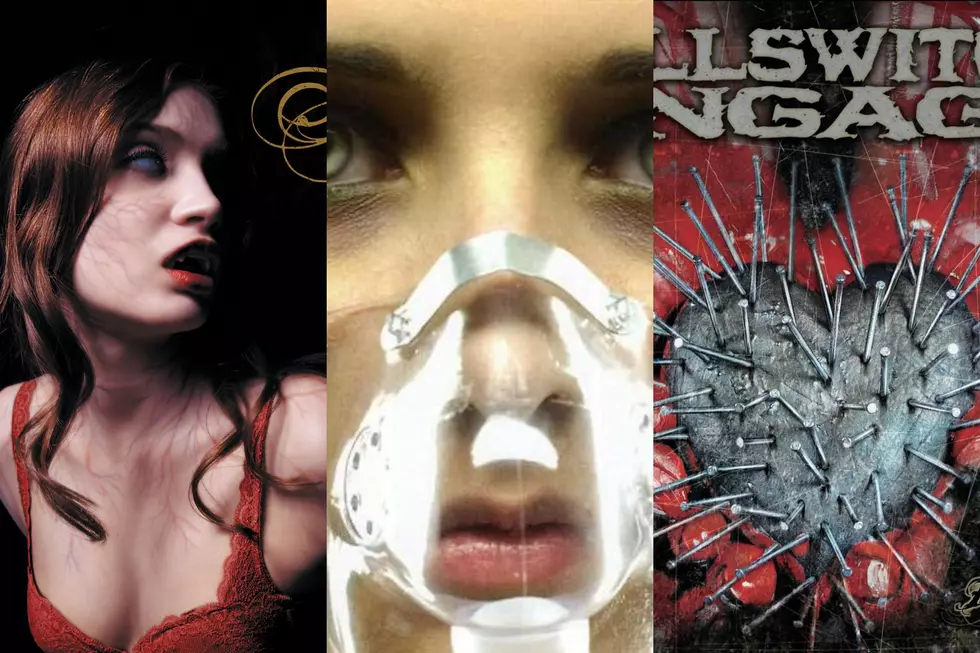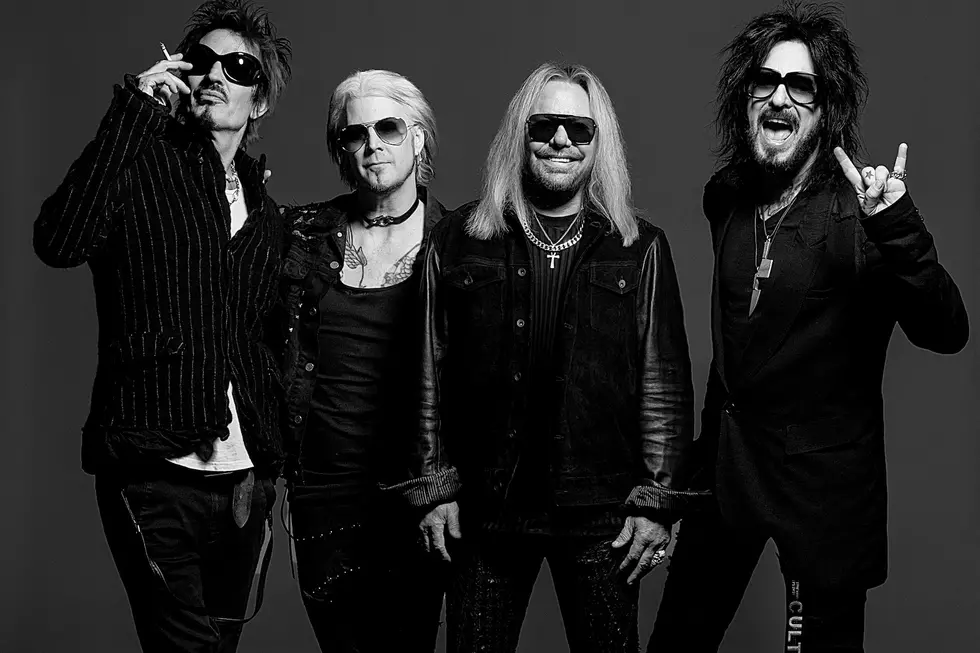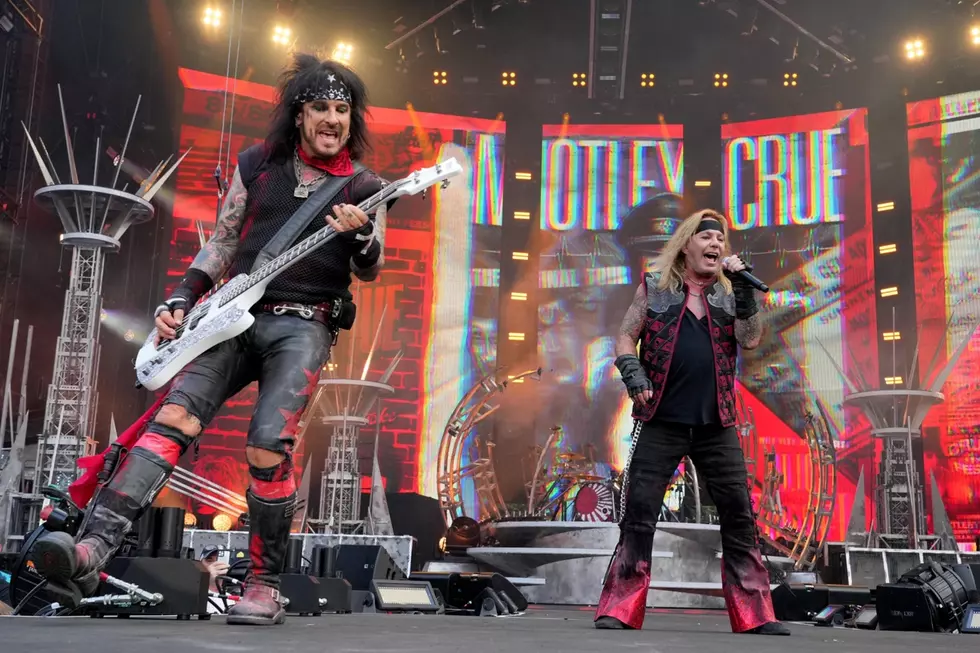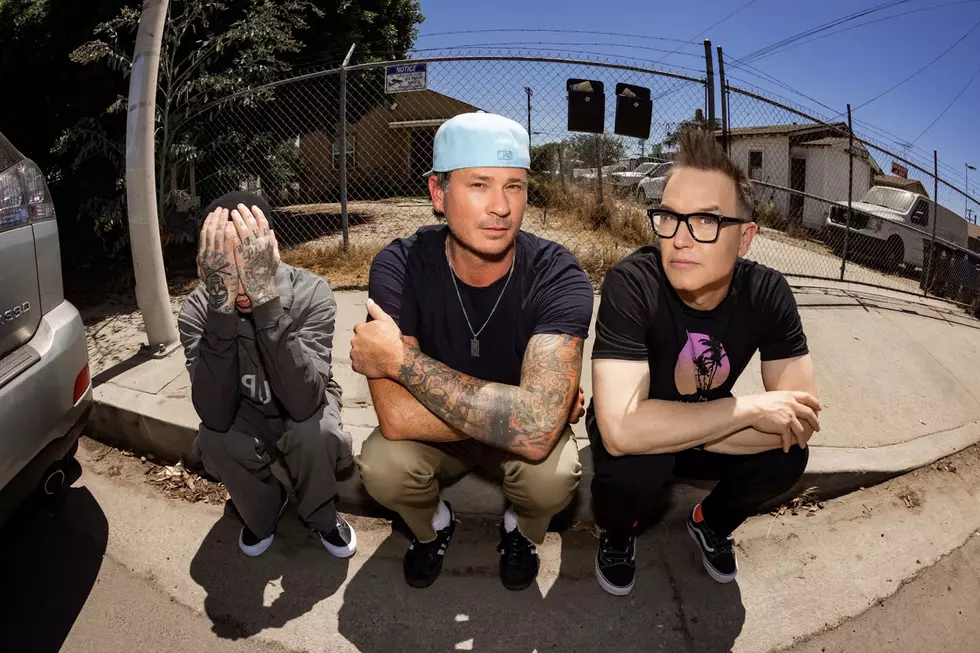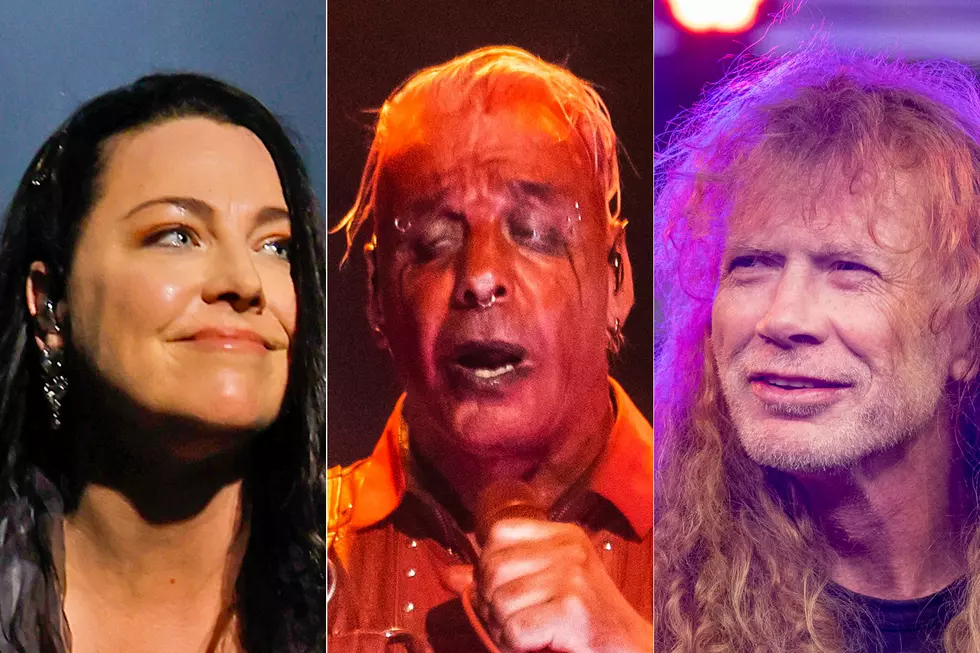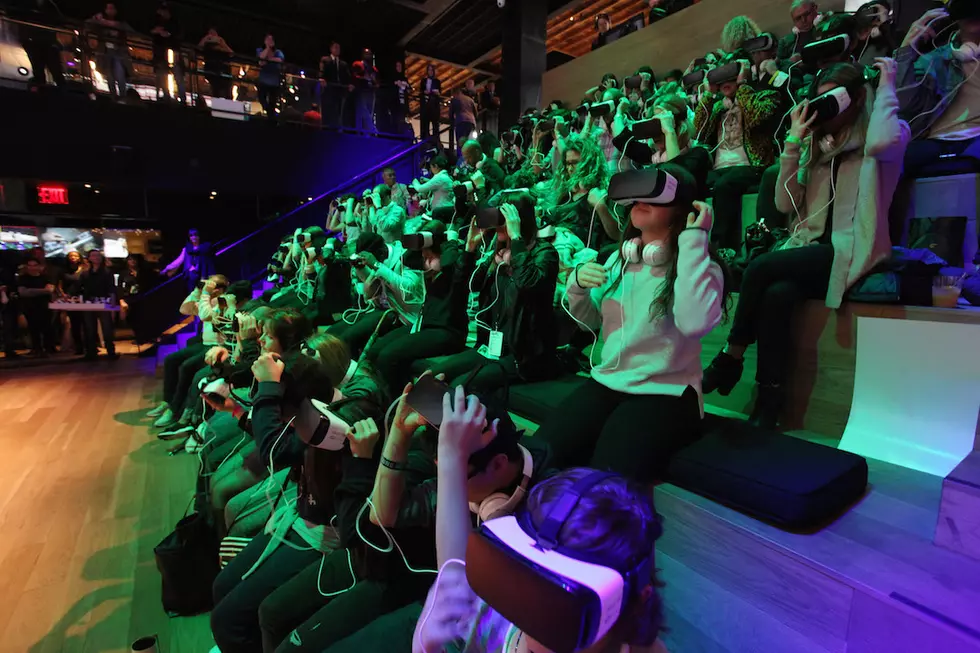
Virtual Reality and the Future of Touring
Virtual reality has the potential to be the biggest innovation to shake up the music industry since iTunes and the iPod came to prominence. The digital trend is bemoaned by musicians who no longer enjoy the days of platinum record sales and the paychecks that come with it, but this revelation can help to reverse this revenue problem. Since digital music’s reign over the last decade, the industry model has flipped: bands previously toured to promote record sales whereas now new music is released in order to support a reason to get back out on the road. With this model cemented, at least for now, technology has once again crept into music, offering fans new ways to experience their favorite artists and this time it means full immersion.
This week, Avenged Sevenfold revealed their much-hyped mysterious announcement for Oct. 27 and it’s set to change the concert experience in the immediate future. The California metal act will perform the first-ever event of its kind show, inviting fans around the globe to strap on and place themselves onstage right along with the band through the use of advanced virtual reality technology made possible through a partnership between Universal Music Group, Capitol Records and VRLIVE. The experience offers a 3D, 360 degree VR live stream to a worldwide audience and it could become the new concert standard in the next handful of years.
There’s three sectors that will be impacted by this next trend: fans, musicians and the string pullers behind the music industrial complex.
First, let’s look at the virtual reality concert experience from a fan perspective. How, in any capacity, does this not completely rule? Much like sports fans imagining the World Series, bottom of the ninth inning, bases loaded, two outs, full count at bat down by three runs scenario, rock fans have always envisioned themselves on the world’s biggest stage in front of tens of thousands of screaming, circle-pitting fans. The surge of adrenaline and satisfaction of performing was something that, until now, could only be experienced by the musicians themselves.
Sure, it won’t be the same as writing the music or playing the actual instruments for those fans (that’s coming in Guitar Hero and Rock Band, which we’ll address a bit later), but any opportunity to place yourself in a reality where you can stand onstage at will alongside your favorite bands is entirely unprecedented. Now here’s the next step: monetization.
The touring industry will undoubtedly make a killing off of this unique access to a world previously only fantasized. In the past, the home concert experience was made by on-demand television purchases that allowed fans to view an entire show from the comfort of their couch. The events were sparing until the rise of live streaming coupled with the Internet that brought shows to any and all screens whether at home or on the go. This shift has been gradual, but the leap is now being made, opening up an entirely new revenue stream.
Fans who don’t enjoy the luxury of living in a major rock and metal touring market are either forced to drive hours to a show and hours back, drop money on a hotel or, even worse, not go at all. Now, as long as a fan has a reliable Internet connection, they can experience the show, which is sure to come with some sort of premium when this technology’s adoption rate spikes. These virtual tickets will only bolster sales numbers for bands, helping the longevity of their career as a viable commercial touring act and as an additional supplement to revenues lost in the fallout of album sales.
With fans able to watch every inch of the stage from the vantage point of the musician, it should result in more theatrical shows to maintain the highest level of eye-catching, awe-inspiring, thrill-seeking moments from days long past of some of the most engaging set designs from the artists of the ‘70s, ‘80s and ‘90s (think Pink Floyd' The Wall tour). The over-the-top rock show is now strictly reserved for only the biggest headliners in the world with the rest doing what they can when they can, left with pipe dreams of a grander vision.
To give the fan the ultimate experience is at the heart of the impending virtual reality movement. Imagine getting to stand next to Eddie at an Iron Maiden show, experience the bloodshed of GWAR first hand and dodge a ceaseless barrage of skyward flames during Rammstein.
The reaction will inherently dictate the market and Avenged Sevenfold is an ideal act to kickstart this new opportunity. Their fan base is young, readily adapting to new technological trends, not to mention their undying adoration. Word of mouth will likely be the first way this experience gains traction and having an audience heavily engaged on social media will thrust this first-ever event even further into the spotlight.
With subscription models dominating paid media consumption among this populous, it’s not far-fetched to imagine VR companies capitalizing on this momentum. Picture this: concert promoters like Live Nation could offer fans tiered packages offering varied options of 10 concerts, 15 concerts, etc., on a monthly, annual or other interim basis. Artists could even find music fans who aren’t even into their music tuning into live performances out of sheer curiosity.
The virtual reality onstage experience has already begun with the VR music video, 360 degree music videos and the Guitar Hero and Rock Band franchises. Both aim to place the gamer in front of an audience with Guitar Hero filming live audiences and genuine reactions and embedding them in the game with corresponding action to the gamer’s success or lack thereof. It’s not quite the immersive experience A7X are prepping for, but it’s enough to get the conversation started and gets fans accustomed to this first person view from a rocker’s perspective.
Also in the virtual conversation is the polarizing hologram. Over the summer, Dio Disciples hit the stage for an encore at Wacken Open Air in Germany, shocking fans as they brought the departed Ronnie James Dio back onstage and in convincing fashion. The hologram was complete with crowd interaction both physically and vocally and the band has ambitions to tour with the hologram fronting the group for an entire full length concert.
The immersive experience of the Avenged Sevenfold gig is the obvious end game, but with VR shifting the focus of video games and the ensuing hologram market that can bring back some our most missed and beloved performers, the merging of realities in the live music market is already happening. This is no longer a matter of “if,” but “when” as the technology becomes increasingly more affordable and, thus, adopted.
Will it have a negative impact on the actual, in-person concert experience and traditional ticket sales? That’s doubtful at best. Until the uncanny valley is bridged where humans can no longer distinguish physical reality from virtual or alternate reality, the actual experience of watching a band in person should still reign supreme. After all, who is going to opt for the at-home onstage experience on the same night you can easily head to the show for yourself? The immersion is best for any night the band isn’t playing nearby or, as we said, those who don’t have the ability to catch one of the shows on the tour.
Really, the biggest gripe that could foreseeably come with this is that the aural experience can never match the raw power of several thousand watt PA systems through which these artists play through. Even with audiophile headphones, there will be no replacing the heart-stopping live sound.
We’ll see exactly how this is set to play out when Avenged Sevenfold hit the stage with loads of fans standing right next to them in a virtual space. Be sure to let us know what you think the future holds regarding virtual reality in the comments below.
Top 50 Hard Rock + Metal Live Acts of All Time
10 Infamous Onstage Lunatics
More From Loudwire
